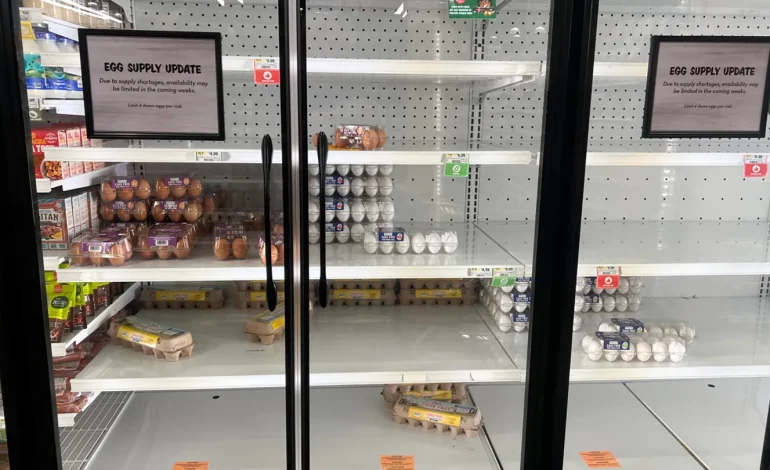Bakeries across the country are facing increasing financial strain as egg prices surge, forcing many to reconsider their pricing strategies and ingredient choices.
With the ongoing bird flu outbreak leading to a significant reduction in egg-laying hens, the resulting shortage has driven wholesale egg prices up by 186% in January compared to the previous year, according to government data.
For Scott Auslander, general manager of Bread Furst in Washington, D.C., fluctuating egg prices have always been a factor in business—but this time is different.
“Our suppliers are telling us that they don’t know when egg prices are going to come down—or if they’re going to come down,” Auslander told CNN.
Bread Furst, which uses about 150 eggs per day, is now paying more than double the price it did last year. As a result, the bakery recently raised prices for all egg-heavy pastries and dishes, including its signature “messy egg sandwich,” which now costs one dollar more.
Meanwhile, Manhattan Sweets Boutique Bakery in Long Island, New York, is also preparing to increase prices but is exploring egg replacers as a potential cost-saving measure. These alternatives, which contain a mixture of egg yolk and soy, could replace 5% to 10% of the eggs used—but owner Werner Simon is wary of compromising the quality of his baked goods.
The H5N1 bird flu virus has devastated flocks across the country, leading to the deaths of more than 40 million egg-laying birds, according to the US Department of Agriculture. This has contributed to egg shortages, causing prices to spike and making it difficult for bakeries to maintain their traditional recipes and pricing.
“We’ve really never had to think about the cost of eggs until now,” said Auslander.
With egg prices at record highs, some bakeries are turning to egg substitutes to offset costs. Eat Just Inc., a company specializing in plant-based egg alternatives, has seen a fivefold increase in sales over the past month. Retailers like Walmart, Whole Foods, Kroger, and Publix have significantly increased their orders of these products.
“It usually is us reaching out to places,” said Josh Tetrick, CEO of Eat Just. “Over the past few weeks, the company has experienced the polar opposite.”
In response to the demand surge, Eat Just has ramped up production and expedited orders for ingredients and packaging materials. Despite the higher costs, the company is not increasing prices, hoping to retain new customers even after the egg supply stabilizes.
For bakeries, raising prices is often a last resort, as it risks alienating customers. Charles Lindsey, a marketing professor at the University at Buffalo School of Management, suggests that effective communication is key to maintaining customer trust.
“It all boils down to how well a business can explain why and how they’re sharing the pain,” Lindsey said. “The last thing you want to do is raise prices and not be transparent about it.”
At D Light Cafe & Bakery in Washington, D.C., co-owner Kerri Francis Bradley has absorbed the higher egg costs so far but acknowledges that price increases may be necessary. Before the crisis, the bakery could buy 30 dozen eggs for $50, but that same order now costs over $200.
To ease the transition, Bradley plans to inform customers through social media, in-store signage, and trained staff to ensure transparency.
“Whenever we do [raise prices], we’ll probably post it on our social media page, make sure our front-of-house team is educated, and put up signage so people know—hopefully, they will continue supporting small businesses,” she said.








